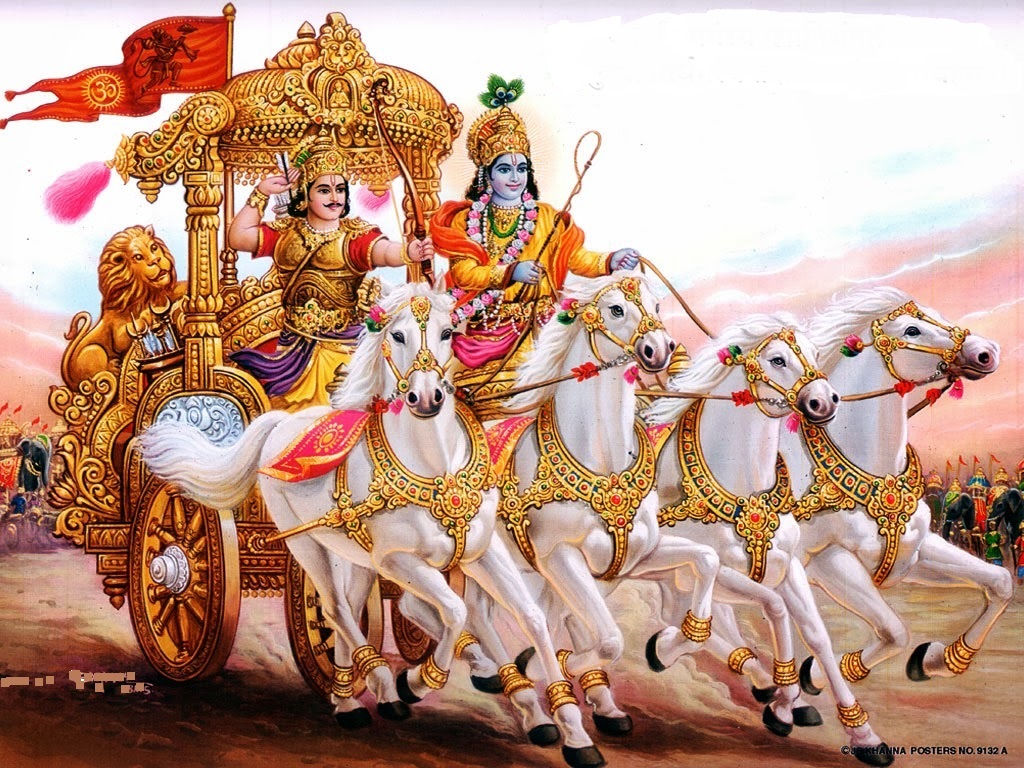The Relevance of the Bhagavadgita to Humanity 7-3: Swami Krishnananda.
Tuesday 20, Aug. 2024, 06:10.
The Relevance of the Bhagavadgita to Humanity :7.3
Chapter 7: Can War Ever be Justified? - 3.
The First Six Chapters of the Bhagavadgita:
Swami Krishnananda
(Spoken on Bhagavadgita Jayanti
========================================================================================
There was another side of it which disturbed Arjuna's mind, apart from the question of the success or the defeat. It was a war. Even today politicians, statesmen and social philosophers do not seem to have come to the conclusion as to the meaning of war itself. What is its justification? There are those who say it cannot be justified under any circumstance. It is a beastly behaviour of man and, therefore, it cannot be justified. Now I am digressing a little from the point I raised, in order to throw light on some interesting issue which occupies many people's minds these days. It is a totally unjustifiable behaviour of man, that which we call battle or war, yes. So it should not be there. If everyone in the world says it should not be there, it will not be there. Yes, fine. Does it imply that everyone should accept that war should not be there? We feel that everyone should accept that it should not be there.
Now, why is it that everyone does not accept that it should not be there? It is because of various reasons which are psychological, and perhaps bordering upon cosmical evolution. Do we want that every man in the world should think the same thought? Very fine, if it could be possible that everyone should think the same thought. There should be no difference in thinking. This does not happen. Because of anthropological, historical, natural reasons, we will not expect all individuals to behave in the same way. And the world being a house of many living beings apart from merely the human, the subhuman level also should be considered part of natural history. The world is not a house only for human beings. You would wish that every living being should have the same attitude always. If that were the case, there cannot be one pouncing on the other, one exploiting the other. There would be no fear of one from another.
But for reasons which are obvious to students of natural history and evolution, this is not possible. The cow will certainly wish that the tiger should not pounce on it. Why should they not be friends? But the tiger is unable to think in that manner, for reasons which are not entirely in its hands. A condition will not prevail in the world where there will be a uniform way of thinking in all living beings; therefore, it is the opinion of certain thinkers that war cannot be avoided as long as the world exists in the way it exists.
Then, if that is the case, a most unjustifiable thing has to be accommodated with every circumstance in one's life. If there is at least one person in the world who cannot believe that war is not justifiable, it becomes an unavoidable circumstance. It may not become a justifiable thing; it becomes an unavoidable thing. If it is unavoidable, what should be our duty under that condition?
What should the cow do when the tiger says, “I will not listen to you”? This is a great question: Shall I offer myself? Shall I pursue the principle of war and battle being unjustifiable? Even my spirit of retaliation may be unjustifiable, because to retaliate is to engage oneself in war, so I have already accepted that it is unjustifiable. So if I am to pursue a principle of the unjustifiability of war, I should not retaliate if there is aggression upon me.
Continued











Comments